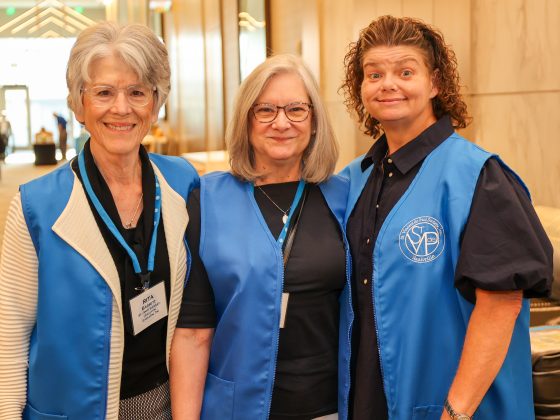Vincentians “do not judge those they serve.” [Rule, Part I, 1.9] This simple admonition is readily accepted by members of the Society, given that all Christians are called to stop judging. But human nature being as it is, it can be difficult to practice non-judgmentalism when we find ourselves in a circumstance which seems to call for judgment.
“Everyone,” C.S. Lewis once said, “says forgiveness is a lovely idea, until they have something to forgive.” [Mere Christianity] In a similar way, being non-judgmental sounds quite good in theory, but then we encounter the neighbor who has blown every penny of his tax refund on a vacation, and now needs help with rent; the neighbor who has bought food for his five dogs but needs our help to feed the kids; or the neighbor who paid the cable bill and now can’t pay for electricity.
“What were they thinking?” we ask ourselves, allowing ourselves in that moment to believe that we know best. More often than not, though, the measure by which we measure is merely ourselves, our own experiences and circumstances. It becomes easy to assign blame when we lose sight of the different experiences and circumstances that shape each of us, as if the person with one leg should be expected to keep pace with the sprinter, or the person with no hope to make plans for the future.
Our Manual explains that our “nonjudgmental attitude excludes assigning guilt or responsibility for a person’s needs or problems.” [Manual, 62] As Blessed Rosalie also taught, we must “love those who are poor, don’t blame them too much…It is with such words that we dispense ourselves from the very strict obligation of charity.” [Sullivan, 211]
The astrophysicist Carl Sagan once said that “If you want to bake an apple pie from scratch, you must first invent the universe.” In this witty saying, he captures the similar truth that on one home visit (or many) we cannot fully know each neighbor’s “whole story.” We cannot know all of the obstacles they have faced, nor all the victories they have won.
On our home visits, we are called to judge the need, not the person, always with a view towards helping in the best way possible. The only way to do this is, as St. Vincent reminds us, is to “get in the habit of judging events and persons, always and in all circumstances, for the good. If an action has a hundred facets to it…always look at its best side… even though intelligence and human prudence tell us the contrary.” [CCD II:638]
Each of us is created in God’s image, unique and unrepeatable, formed throughout our lives by the people that surround us. May it be our love, not our judgment that helps form our neighbors – and ourselves.
Contemplate
Are there things that sometimes cause me to jump to a quick judgment of the neighbor?




Is that quote meant to say “get in the habit of judging events NOT persons”?